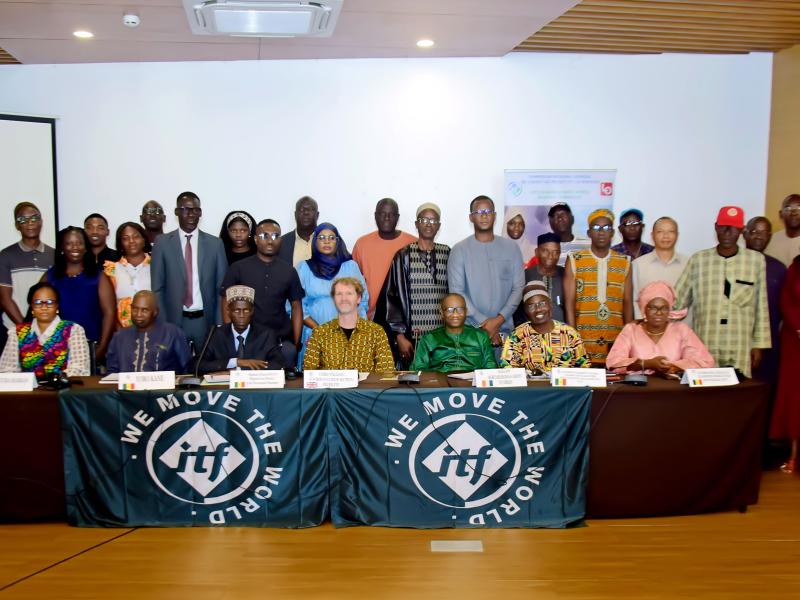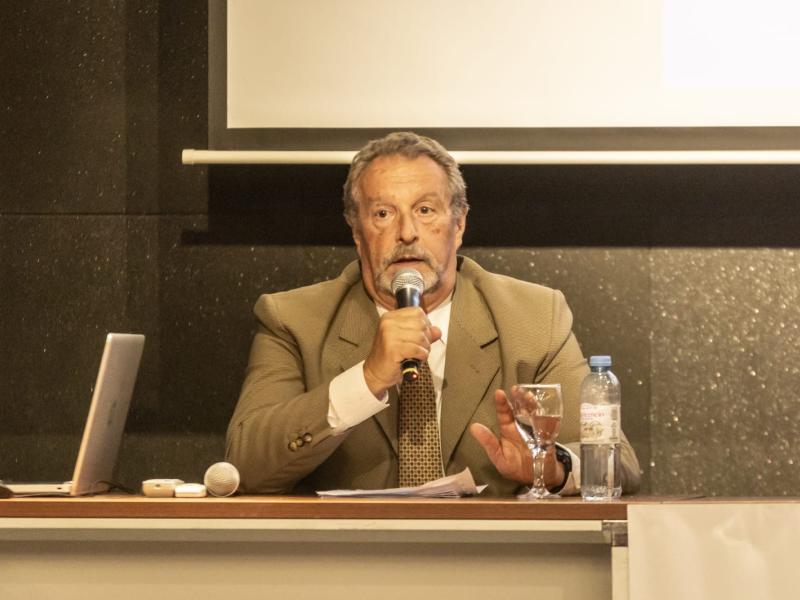We should be looking ahead, this International Civil Aviation Day, to the challenges of economic recovery and climate change. Instead, we’re still gripped by the devastating impact that Covid-19 continues to have of aviation workers and the industry worldwide.
Governments in some rich countries have put their own vaccine programmes ahead of tackling the pandemic as a global emergency, and sadly the rise of new, dangerous variants is a set back to the industry’s already fragile recovery.
Workers in aviation are paying the price for this. The ‘knee-jerk’ reaction to the Omicron variant and tightening of travel restrictions begin a new wave of devastation, hitting an industry already ravaged by the pandemic. Since the World Health Organization designated Omicron as a ‘variant of concern’, at least 56 nations have updated travel restrictions in response. The social, economic and mental impacts on aviation workers are set to continue, not to mention the direct health effects.
But it did not have to be this way. ITF General Secretary Stephen Cotton warned that “…the inequality in access to vaccines and treatments globally is an existential threat to transport workers’ personal safety, but also to the resilience of supply chains, and reinvigoration of the global economy.”
Unions globally, including the ITF, have been arguing for months that none of us will be safe until we are all safe. Earlier this year, we quoted Professor Sarah Gilbert, the inventor of the Oxford vaccine, as she warned a failure to provide vaccines to poorer countries risked the rise of dangerous new variants and that the “priority must be to vaccinate as many people as possible and as quickly as possible”.
“This is not the first time that recovery has been set back, Omicron joins the Alpha and Delta strains which also brought significant setbacks. What the survival of aviation needs is consistency and stability. This is a global health crisis, that requires a global solution – vaccinating the world,” said Gabriel Mocho Rodriguez, ITF Civil Aviation and Tourism Services Secretary.
The ITF Civil Aviation Section has been at the front lines of calls on governments to stop blocking universal access to vaccines, urging governments to pass the TRIPS waiver (a Trade-related Intellectual Property Rights or TRIPS waiver) and remove all other barriers that will allow all countries access to the vaccines, treatment and diagnostics needed to end this crisis. This call is backed by unions representing over 200 million workers.
“As the reality of Omicron begins to bite, the aviation industry fears it is about to reap the whirlwind of another industry’s greed. A waiver must be agreed by all WTO countries. The UK, the EU and Switzerland have all put commercial interests ahead tackling the pandemic globally,” said Mocho Rodriguez.
Omicron is setting back aviation’s recovery triggering new concerns for the wellbeing of workers who have already faced so much. Inconsistent border closures are damaging stability. The soaring price of testing is making inequality of travel access worse.
“We need consistency. We need stability. We need fairness in how authorities manage pandemic responses. Aviation industry workers demand a fairer approach — our industry depends on it,” added Mocho Rodriguez.
Another aspect of the pandemic has been an alarming rise in the number of disruptive passengers. Until recently, there has been a poor world-wide response. At the International Civil Aviation Organization (ICAO) Covid Conference, the ITF pushed for global ratification of the Montreal Protocol 14, to harmonise countries’ responses to unruly travellers. The more countries which ratify, the better protected workers will be on the ground and in the air.
Although the present situation is discouraging, we want to celebrate and give a heartfelt thanks to our aviation affiliates for their magnificent response to the pandemic and the changes it has wrought across the industry. Their strength and commitment will guide us through this crisis to a healthier and more resilient industry. When freedom to travel is restored, we know we can count on all members of the civil aviation community to help us fly safely.



